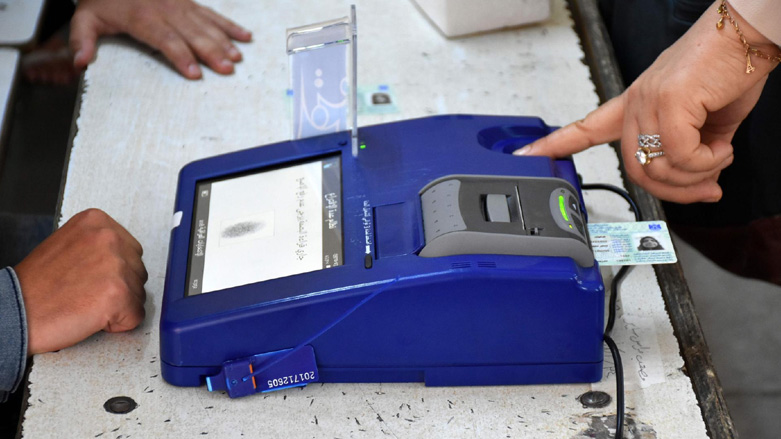Iraq denies transferring personal data of millions of citizens to Iran

ERBIL (Kurdistan 24) – Iraq’s Interior Ministry on Thursday denied reports that the personal data of millions of Iraqi citizens had been transferred to the government in Tehran under the pressure of a pro-Iran Shia militia faction.
The statement comes two days after Saudi-owned television channel, Al Arabiya, reported that the Iraqi Hezbollah, which has close ties to Iran, had transferred the personal data of almost nine million Iraqis, known as the “National Card,” from the Iraqi Interior Ministry to Tehran.
The TV channel quoted Iraqi security sources as saying that the transfer occurred after former Prime Minister of Iraq Haider al-Abadi, and his Interior Minister, Qassim al-Araji, left office in Oct. 2018.
The report claimed Abadi refused to appoint an officer close to the Hezbollah faction within the Interior Ministry, a man who later allegedly “exploited the vacuum” that arose during negotiations to form the new government in Baghdad.
The officer began pressuring staff members working in the Civil Status Department to acquire the personal details of some nine million citizens through their electronic database.
Iraqi security sources, quoted by Dubai-based and Saudi-owned al-Hadath TV, warned that Tehran could “exploit” the data it reportedly obtained via its strong connections within the Iraqi government.
The Ministry of Interior, which has yet to be appointed a new minister, issued a statement on Thursday evening denying these reports, saying “this information is completely false because in no way could the data be downloaded or extracted out of the internal system.”
“The computers for the national card system are protected by more than a sophisticated firewall, preventing access to and the extraction of any information kept in the database,” the statement explained.
The statement reiterated that ministerial staff members were “performing their duties professionally and with integrity so as not to betray the trust and respect of the people.”
The Ministry also threatened to sue the TV channel who initially made the claims and described the report as a “fabrication harming the security and service system of Iraq.”
Since the fall of the authoritarian system in Iraq in 2003, Iran has considerably increased its influence over Shia-majority led governments, to the extent that political analysts often argue most key decisions in Baghdad are actually being made in Tehran.
Iraq continues to rank high on Transparency International’s list for corruption, fraud, and mismanagement of state institutions, some of the most significant challenges facing the country since the fall of the former regime.
According to the organization’s 2017 Corruption Index, Iraq ranks 169th, the eleventh most corrupt country out of a total 180.
Editing by Nadia Riva
